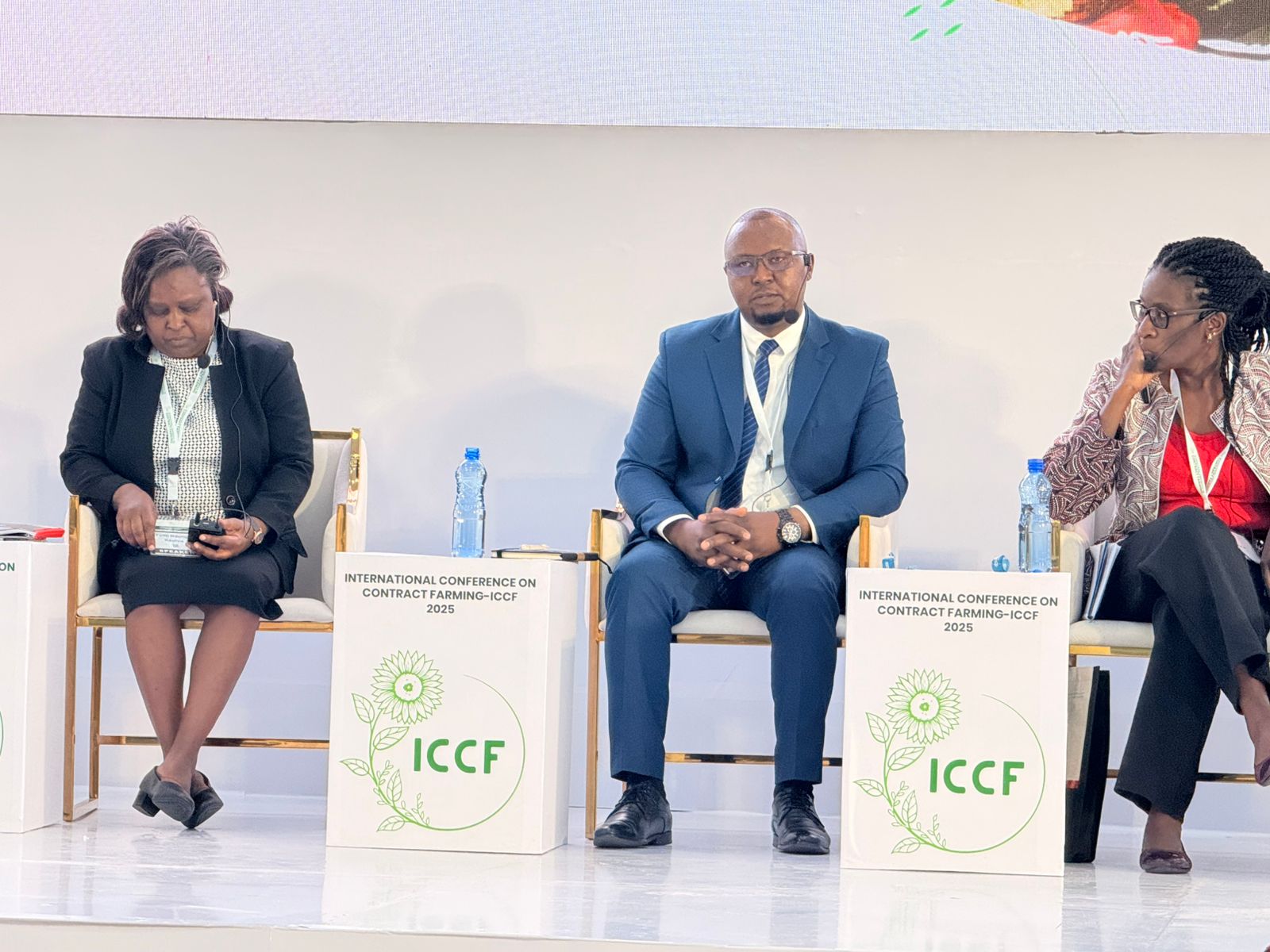 Control Union Managing Director, Murithi James (centre) at the International Conference on Contract Farming (ICCF), taking place at the Sarit Expo Centre/HANDOUT
Control Union Managing Director, Murithi James (centre) at the International Conference on Contract Farming (ICCF), taking place at the Sarit Expo Centre/HANDOUT
Speakers at the International Conference on Contract Farming (ICCF), taking place at the Sarit Expo Centre, called for stronger legal and institutional frameworks to ensure fairness, shared responsibility, and equal bargaining power between farmers and agribusiness buyers.
The two-day conference, which brought together policymakers, producer organisations, exporters, and global certification experts, focused heavily on farmer protection, international certification standards, and sustainable agricultural practices.
The ICCF aims to advance discussions from its inaugural 2024 edition by offering a platform to address emerging challenges and opportunities in contract farming across Africa.
One of the key voices at the opening session was Control Union Managing Director, Murithi James, who stressed that international standards—such as Global GAP, Organic Certification, and Rainforest Alliance—have become indispensable for farmers seeking access to competitive export markets.
These standards, he noted, are especially critical in high-value value chains such as fruits and vegetables.
Murithi explained that many smallholder farmers fail to meet export requirements not because they lack commitment, but because they lack awareness or technical understanding of the practices needed to comply.
“Bridging this gap has remained a priority, and we have been actively linking farmer groups to exporters and supporting them through the certification journey,” he said.
He further acknowledged that certification costs pose a significant barrier. Individual certification can be prohibitively expensive, he said, whereas group certification dramatically lowers the cost for farmers.
“In addition to cost-cutting benefits, group arrangements enable shared resources, better quality control, and improved access to structured markets,” Murithi added.
As discussions continued, he emphasised the need for collective action from all stakeholders—government agencies, standards bodies, producer groups, and agribusiness buyers—to promote sustainable production, enhance quality, and strengthen farmer earnings.
Murithi urged renewed commitment to transforming contract farming into a model that delivers real value for farmers while safeguarding global market competitiveness.
Murithi also highlighted Control Union’s vast experience in conducting audits and certifications across the United States, Europe, Asia, and Africa.
The company, a global leader in testing, inspection, and certification (TIC), continues to support agricultural value chains through its farmer-focused initiative, Control Union Machinani.
The programme has reached 16 counties in Kenya, training cooperatives on market expectations, compliance requirements, and opportunities to grow beyond traditional farm-gate sales. The avocado sector remains a central focus due to its strong local and export potential.
The ICCF 2025 is expected to build on the momentum from the 2024 event, which attracted over 500 participants and sparked important discussions on strengthening agribusiness linkages and boosting farmer incomes through equitable contract farming.
The conference continues on Wednesday, with more panel sessions and partnership negotiations expected to shape the future of contract farming across Africa.













